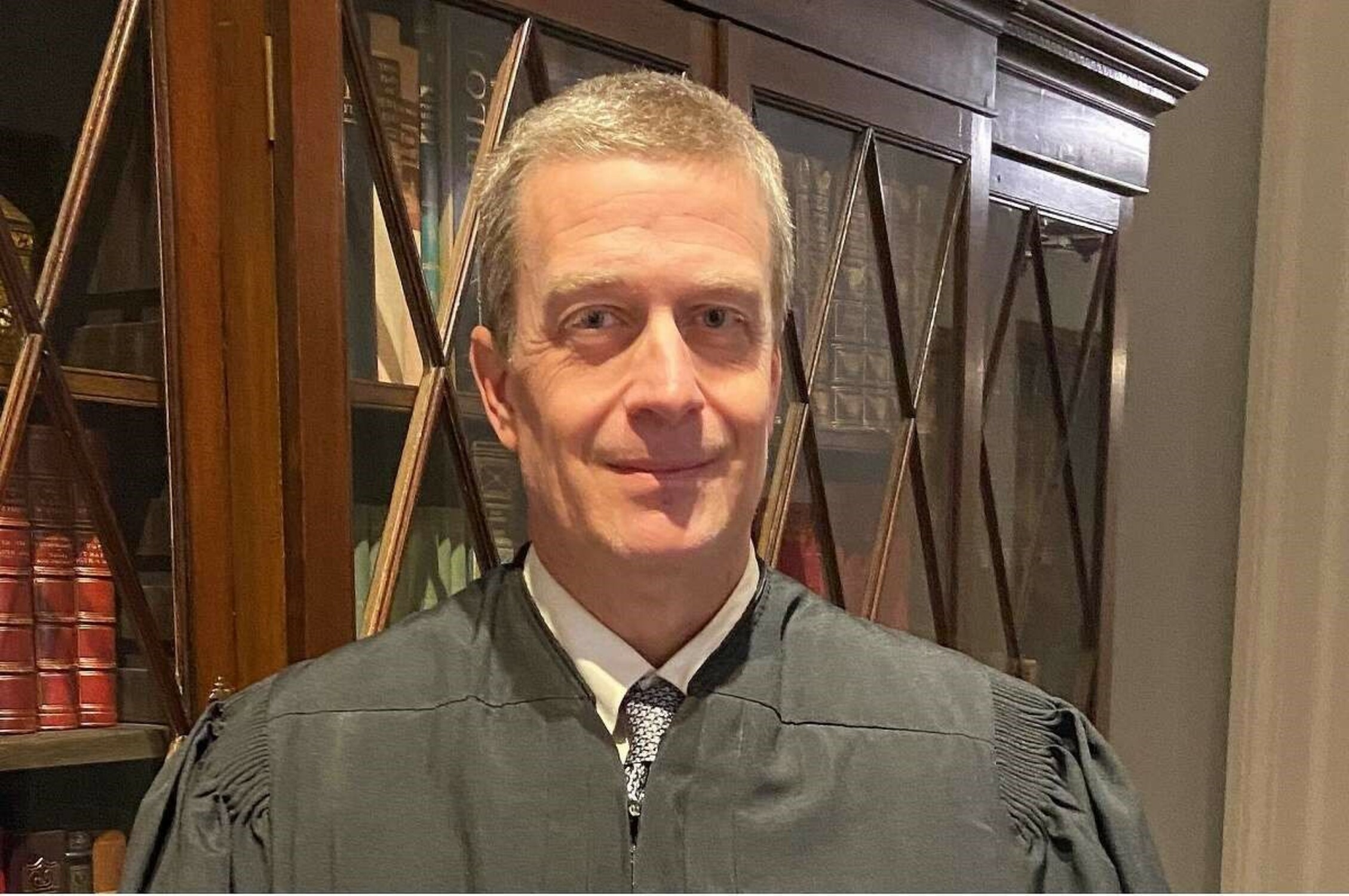And I support him! Honestly, I’m as surprised as you are.
David Schenk, the new presiding judge on Texas’ Court of Criminal Appeals, is on a mission to make sweeping changes to the rules governing judicial elections in the Lone Star State.
Right now, Schenck points out, anyone can donate to a judge’s political campaign in Texas, even if they are in the middle of a case the same judge will decide. There are few restrictions on how much they can give. And nothing in the law or ethics rules stops judicial candidates, including sitting judges, from asking those people for contributions directly.
“We need to do something about this,” Schenck, a Republican, said in an interview shortly before he took the bench in January.
“The adults need to enter the room here.”
Now that he has a leadership position on one of Texas’ two statewide courts, Schenck intends to make that happen — even though he and two of his newly elected colleagues just won their seats on the bench with unprecedented support from deep-pocketed special interests.
Ultraconservative billionaires including West Texas oilman Dan Wilks, Dallas telecom company founder Kenny Troutt and Houston software magnate Mike Rydin were all top contributors to a political action committee (PAC) supporting Schenck and the two other successful CCA candidates. The PAC raised $350,000, far more than any CCA hopeful has collected in the last decade, campaign finance records show.
The fundraising blitz was set up by allies of Texas Attorney General Ken Paxton, who vowed revenge against the CCA’s incumbent judges after they ruled that he could not unilaterally prosecute election fraud cases.
“Because the general populace has absolutely no clue how the judiciary works, it’s easier to influence elections,” said Zachary Maxwell, who used to work for a conservative media outlet funded by Wilks and is now an independent consultant who advocates for judicial ethics reform. “We could have anybody come in here, throw in a bunch of money, say the right thing, and get anyone they want elected.”
Schenck said he never asked for help from Paxton or the PAC that supported him, and that he did not coordinate with them during his campaign. He also did not run at Paxton’s behest, and said he has been careful not to comment on how he would have ruled in the election fraud case that galvanized Paxton and his allies.
Still, Schenck said that if any of the reforms he’s calling for make it harder for himself or his fellow judges to raise campaign dollars in the future, it’s worth the risk.
“It makes you feel better about the office when you’re in it,” Schenck said.
[…]
Schenck thinks there are easier, more practical reforms than getting rid of judicial elections. He wants to go after loopholes in Texas campaign finance rules that allow multiple attorneys at the same law firm to “bundle” their donations to a statewide judicial candidate, which means they can contribute as much as $30,000 to a campaign rather than the $5,000 cap for individual donations.
He also wants more disclosure requirements for donors — especially those who can avoid contribution caps by giving to a political action committee (PAC) that “indirectly” supports a candidate, rather than donating to someone’s campaign.
Right now, if someone with a pending case donates to a judge on that same court, no one finds out until campaign finance reports are published months later. Schenck says such donors should have to file a special disclosure form right away so the opposing side in the court case knows about it — whether the contribution went to a campaign or to a PAC that is influencing the race.
And if the donation is large enough, a judge should have to bow out of the case. (Right now, six states have decided on the amount that should trigger a judge’s recusal, but Texas is not among them.)
“Anyone who gives to a PAC, I’d like to know that you gave to a PAC, and if it’s beyond some limit, I’d like to not be your judge, especially while the case is pending in front of me,” Schenck said.
See here, here, and here for the background. I’m fine with all of these proposals. The only thing I’d add is that there needs to be some real enforcement mechanism built into them, and not just “the Texas Ethics Commission can levy a little bitty fine”, or else they’re just window dressing. Make it so that violations can lead to a judge’s removal and/or real discipline from the State bar, up to and including suspension or even disbarment for repeated offenses, and then we’re talking. If there’s one thing we absolutely should have learned over the last eight or so years it’s that laws that can’t be or don’t get adequately enforced are not only useless, they end up encouraging more bad behavior. No consequences, no accountability. Let’s use what we’ve learned.


Pingback: “One of the judges Ken Paxton helped elect wants to reform judicial campaign finances”
Meh, or semi-meh. I’m with Tom Phillips; real reform includes non-partisan retention elections, and from time in New Mexico, I know how these work.